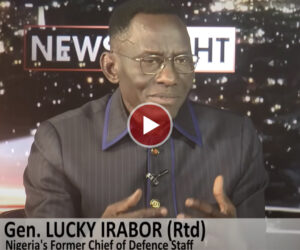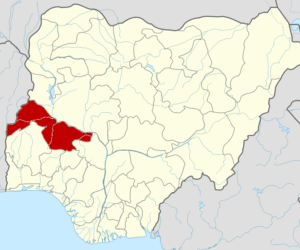A new Forward Operational Base (FOB) of Special Forces has been established at Runtuwo town in Augie local government area of Kebbi state to reinforce the area’s security architecture.
The deployment, Blueprint gathered, was to consolidate on the successes recorded in surmounting the activities of the Lakurawa bandits.
However, a body of elders under the aegis of Northern Elders Progressive Group (NEPG), has called on the northwest governors to dialogue with the bandits for a lasting peace in the region.
…FOB deployment
Speaking Tuesday on the decision to deploy Special Forces, during his visit to Augie, Kebbi state Governor Nasir Idris affirmed that his administration would continue to place premium on the protection of lives and property of all persons.
He said: “I cannot visit Augie without touching on security issues; before now, Augie used to be haven of peace and security. However, latest development brought with it security challenges, my administration has stood firm to improve the situation.
“The incumbent government has established an FOB and deployed an APC to Augie to restoring security. Growth and development are impossible without security.
“In consolidation of our efforts, a new FOB is being established at Runtuwo in the local government area to be manned by Special Force from Abuja, so that the people of Augie can sleep with their two eyes closed.”
He also announced the approval for the complete rehabilitation of the Augie General Hospital, following entreaties from the people of the area.
On the ongoing registration ahead of the 2027 election, the governor said: “Go and register, males and females, without voter’s card, it’s retrogression, the card is your liberty and expression of love to me your governor, because you cannot vote without it.
“Furthermore, let me sound a warning, I’ll replace any public office holder and others enjoying patronage from the government but not helping their people. As you get, please give out, this is the essence of democratic dividends.”
During the visit, the governor commissioned a new All Progressive Congress (APC) office in Augie, and attended a prayer session organised by the people of the area for the success of the administration.
…Northern elders on dialogue
In a related development, the NEPG has called for a peaceful resolution of the insecurity in the northwest.
In a statement Tuesday by its coordinator, Alhaji Yusuf Abubakar, the NEPG said this remains the best and only way out of the security challenge in the area.
Abubakar explained that the group was encouraged by the efforts of the National Security Adviser, Mallam Nuhu Ribadu, and other stakeholders currently exploring non-kinetic measures to restore peace in the region.
“We are happy with the steps being taken so far. Travelling recently from Sokoto to Gusau, and from Funtua to Zaria, I observed a more peaceful atmosphere.
“Compared to before, there is improvement in security, in patrols, and in the safety of commuters along that road,” he said.
He urged governors to embrace dialogue as a better alternative to condolence visits and repeated military operations that overstretch security forces.
“It is better for a governor to spend his resources on saving lives than spending billions on condolence.
“One life is far more important than any political gesture,” Abubakar said.
On those opposed to dialogue, it said: “Even powerful nations have negotiated with groups like the Taliban, Al-Qaeda, and the Houthis. Negotiation is not weakness; it is about saving lives.”
In a veiled reference to some governors’ claim of having intelligence, it said: “It is unbecoming of a leader to say he knows the movements of criminals but does nothing with the information. Such propaganda is irresponsible.”
“The office of the National Security Adviser represents unity, peace, and security for the country. Attacking it is an attempt to destabilize the whole nation,” he added.
The group also commended the Chairman Senate Committee on Intelligence, Senator Shehu Buba, and his team of eminent Nigerians working hard to ensure peace returns to the region.
“While commending the efforts and foresight of the eminent Nigerians involved in this onerous task, particularly we commend Senator Shehu Buba, Chairman Senate Committee on Intelligence in building frontiers of dialogue and negotiations among the communities and bandits in order for a peaceful coexistence.
“They have worked tirelessly to ensure the success of the dialogue despite being insult and maligned by certain group of people hiding under some groups sponsoring lies and propaganda against them; especially targeting personality a positive initiatives of the National Security Adviser, Malam Nuhu Ribadu.
“Every good and responsible northerner will be happy for the ways of ending the bloodshed and attacks by the bandits and other elements of disunity,” the group said.
They called on the governors to work in synergy with the NSA, Minister of Defence, and the Service Chiefs to ensure the peace initiative succeeds.
…‘70% of North-central insecurity solvable’
Meanwhile, Senior Special Assistant to the President on Community Engagement (North-Central), Dr Abiodun Essiet, has said 70 percent of security challenges in the North-Central part of the country can be resolved through non-kinetic means anchored on communities.
Essiet said this Tuesday while speaking at the capacity-building training for stakeholders in the North-Central, held at the State House in Abuja.
“From our analysis, nearly 70 percent of the security challenges in the North Central can be addressed through dialogue, reconciliation, intelligence sharing, and community engagement, rather than through force alone,” she said.
The presidential aide said: “Once we succeed in resolving internal communal conflicts and addressing the root causes of tension, we will already be halfway to overcoming insecurity in the North Central while armed criminality remains for security agencies.”
Recalling the June 5 launch of the Presidential Community Engagement Peace Initiative (PCEPI) in Jos, Plateau state, Essiet said: “That historic event was a significant step in our collective journey toward fostering unity, strengthening social cohesion, and empowering communities to take ownership of their peace processes.”
She said in line with Nigeria’s implementation of United Nations Universal Periodic Review (UPR) recommendations, her office was partnering the International Communities’ Organisation (ICO) on a project titled “Promoting Community Peace and Strengthening Social Cohesion in North Central Nigeria.”
Describing the project as grassroots-based that leaves no local government area behind, she said that “at the heart of this initiative is the establishment of a peace structure that will cut across all the 110 local governments in the North-Central region.”
“This structure will not just exist in name; it will be an active platform … focusing on gathering and sharing intelligence, facilitating continuous dialogue, and helping us identify underlying issues and root causes of conflict. Ultimately, this peace structure will serve as the backbone of sustainable peacebuilding in our region,” she said.
At the session, stakeholders including Commandant-General of the Nigerian Forest Security Service (NFSS), Ambassador Joshua Osatimehin Wole, highlighted forests and borders as pressure points.
He said Nigeria had 1,129 forest reserves, with 174 in the North-Central.
Wole, who called for tighter inter-agency cooperation and effective forest control, said: “For sustainable peace in our communities, all our forested regions must be well coordinated and preserved. We need to protect the forests.
“We must create additional security agencies to conduct continuous security surveillance. Three states border international frontiers—Niger, Kwara and Benue—and they are the epicentres of insecurity. There should be inter-agency cooperation and effective control of our forests.
“What Nigeria is currently going through goes beyond farmers–herders clashes. We must also consider the post-Gaddafi era.”
In his intervention, the Director of the MacArthur Foundation, Kole Shettima, underlined the centrality of stability to development.
“Unless there is peace, you cannot do what you want to do. Peace is essential and paramount,” he said.
Shettima urged the National Assembly to strengthen traditional institutions, stressing that “we have to look historically at how our elders solved conflicts and learn from it.”
Also speaking, project coordinator, Jacob Alagbe, said “the programme brings state-level actors together to promote peaceful coexistence and social cohesion, with outputs feeding into state-specific action plans.”








